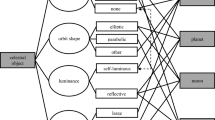Abstract
Both the presuppositions underlying a scientific theory and the theoretical claims of which the theory consists play a twofold role at the same time. They are both settle, and they are meant to confine the way in which the terms specific to the theory may be interpreted. These two functions (descriptive and semantic) cannot be separated in any sharp way. The process of the formation of scientific theories consists of the formation of both the conceptual apparatus (the language of the theory) and the set of claims intended to account for the regularities characteristic of the examined phenomena. One of the main theses of this paper is that the hypotheses one can formulate within a given theory may not have a definite truth value, if the conceptual apparatus of the theory in question is not “veristic”, i.e. the correspondence between the concepts and the elements of structure of the phenomena to which the theory refers is not defined in a complete and unique manner. The concept of truth and the relevance of this concept for metatheoretical investigations is the central issue of the paper, both its present part and the one to appear in the next issue. the considerations the reader is going to find in this part are carried out in a rather loose way. A more formal exposition of some of the topics undertaken here is to be found in the forthcoming part.
Similar content being viewed by others
References
Ajdukiewicz, Kazimierz. (1934), “Das Weltbild und die Begriffsapparatur,” Erkenntnis, 4, 259–287.
Achinstein, P. (1964), “The Problem of Theoretical Terms,” American Philosophical Quarterly, 2, 193–203.
Ayer, A. J., ed., (1959), Logical Positivism, New York: Free Press.
Barwise, J. and Perry, J. (1983), Situations and Attitudes, Bradford Books — The MIT Press.
Bridgeman, P. W. (1927), The Logic of Modern Physics, New York: Macmillan.
Carnap, Rudolf. (1932), “Überwindung der Metaphysic durch Logische Analyse der Sprache,” Erkenntnis, 2, English transl., 60–81, in Ayer (1959).
Carnap, Rudolf. (1936–37), “Testability and Meaning”, Philosophy of Science, 3, 420–68, 4, 1–40.
Cartwright, Nancy. (1983), How the Laws of Physics Lie, Oxford: Oxford University Press.
Cartwright, Nancy. (1989), Nature's Capacities and Their Measurements, Oxford: Clarendon Press.
Dalla Chiara, M. L. and Toraldo di Francia, G. (1973), “A Logical Analysis of Physical Theories,” Revisita del Nuovo Cimento, 3, 1–20.
Davidson, Donald. (1984), Inquires into Truth and Interpretation, (reprinted with corrections 1991), Oxford: Clarendon Press.
Davidson, Donald. (1990), “The Structure and the Content of Truth,” The Journal of Philosophy, 87, 279–327.
Dretske, F. I. (1981), Knowledge and the Flow of Information, Basil Blackwell.
Duhem, Pierre. (1906), The Aim and Structure of Physical Theory, (1951) transl. by Philip P. Wiener, Princeton: Princeton University Press.
Fleck, Ludwik. Entstehung und Entwicklung einer wissenschaftlichen Tatsache, Einführung in die Lehre vom Denkstil und Denkkolektiv. Basel: Benno Schwabe & Co.; English transl.: Genesis and Development of Scientific Fact, The University of Chicago Press.
Giedymin, Jerzy. (1982). Science and Convention, Oxford: Pergamon Press.
Grunbaum, A. (1971). “Can we Ascertain the Falsity of a Scientific Hypothesis,” in Mandelbaum (1971).
Haack, S. (1992), “Pragmatism”, w E. Sosa and J., Dancy (eds.), Handbook of Epistemology, Oxford, UK: Blackwell.
Haack, S. (1993), Evidence and Inquiry, Oxford: Blackwell.
Haacking, Ian. (1983), Representing and Intervening, Cambridge: Cambridge University Press.
Kitcher, Philip. (1953), The Advancement of Science, Oxford: Oxford University Press.
Kripke, Saul. (1972), “Naming and Necessity,” in D. Davidson and G. Harman (eds), Semantics of Natural Language, 253–355, Dordrecht: Reidel, reprinted as Kripke (1980).
Kripke, Saul. (1980), Naming and Necessity, Cambridge, MA: Harvard University Press.
Kuhn, Thomas S. (1962). The Structure of Scientific Revolutions, second edition 1970, Chicago: University of Chicago Press.
Lakatos, Imre. (1970). “Falsification and the Methodology of Scientific Research Programmes,” in I. Lakatos and A. Musgrave (eds), Criticism and the Growth of Knowledge, 91–196, Cambridge: Cambridge University Press.
Laudan, Larry. (1977), Progress and Its Problems, Berkeley: University of California Press.
Margolis, J. (1986), Pragmatism without Foundations, Oxford UK: Basil Blackwell.
Mandelbaum, M. ed, (1971) Observation and Theory in Science, Baltimore: John Hopkins Press.
Merton, R. K. (1969), Social Ambivalence and other Esays, New York: Free Press.
Newton-Smith, William. (1981). The Rationality of Science. London: Routledge.
Nowak, Leszek. (1980), The Structure of Idealization, Dordrecht: Reidel.
Polanyi, Michael. (1958). Personal Knowledge, Chicago: University of Chicago Press.
Popper, Karl R. (1963). Conjectures and Refutations. Routledge & Kegan Paul. 2nd ed. New York: Basic Books.
Przel\cecki, M. and Wójcicki, R. (1969), “The Problem of Analyticity,” Synthese, 19, 49–74.
Putnam, Hilary. (1973), “Meaning and Reference,” Journal of Philosophy, 70, 699–711.
Quine, W. V. (1951), “Two Dogmas of Empiricism,” Philosophical Review, 60, 20–43.
Smith, Peter. (1981), Realism and the Progress of Science, Cambridge: Cambridge University Press.
Sneed, Joseph. (1971), The Logical Structure of Mathematical Physics, Dordrecht: D. Reidel Publ. Co.
Tarski, Alfred, (1933), Pojecie prawdy w j\cezykach nauk dedukcyjnych, Warszawa: Prace Towarzystwa Naukowego Warszawskiego. English version: “The Semantic Concept of Truth in Formalized Languages,” in Tarski (1956).
Tarski, Alfred, (1956), Logics, Semantics, Metamathematics, 152–278, edited by J. H. Woodger, Oxford: Oxford University Press.
Turner, Jonathan H. (1978), The Structure of Sociological Theory, The Dorsay Press.
Van Fraassen, Bas, C. (1980), The Scientific Image, Oxford: Clarendon Press.
Weinberg, Steven. (1992), Dreams of a Final Theory, Pantheon Books; New York.
Whorf, B. L. (1956), Language, Thought and Reality: Selected Writings of Benjamin Lee Whorf, Cambridge, Mass: The Technology Press of MIT.
Woodward, James. (1989), “Data and Phenomena,” Synthese 79, 393–472.
Wójcicki, Ryszard. (1979), Topics in the Formal Methodology of Empirical Sciences, D. Reidel (Dordrecht) and Ossolineum (Wrocław).
Wójcicki, Ryszard. (1991), Theories in Science (in Polish), Warszawa: Instytut Filozofii i Socjologii PAN.
Author information
Authors and Affiliations
Rights and permissions
About this article
Cite this article
Wójcicki, R. Theories, theoretical models, truth. Found Sci 1, 337–406 (1995). https://doi.org/10.1007/BF00145402
Published:
Issue Date:
DOI: https://doi.org/10.1007/BF00145402



